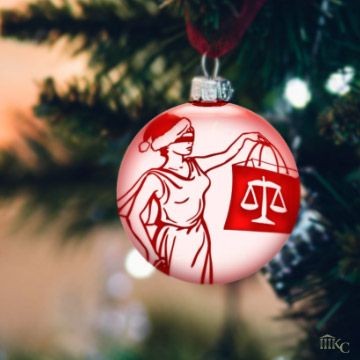The Lawyer's Lawyer
'Tis the Season ...
Q. My tech client had a huge gift basket delivered to me, with an envelope containing first class tickets for a golf trip to Scotland. May I accept these?
A. Don't pack the kilt just yet.
As a token of appreciation, the seasonal gift basket is a nice holiday gesture that won't raise concerns. You may enjoy the edible parts of the basket without fear of repercussions.
The contents of the envelope are harder to swallow. Under Rule 1.8(c) of the Rules of Professional Conduct, an "attorney shall not solicit any substantial gift from a client, including a testamentary gift, or prepare on behalf of a client an instrument giving the attorney or a person related to the attorney any substantial gift unless the attorney or other recipient of the gift is related to the client."
Given your question, I assume that you did not "solicit" the trip to Scotland. You can go, but the comments following Rule 1.8 warn that such a "substantial gift ... may be voidable by the client under the doctrine of undue influence, which treats client gifts as presumptively fraudulent." Rule 1.8 comment [6]. That alone is frightening.
Expensive gifts are particularly dangerous when acceptance would require the drafting of a will or deed of conveyance. Unless your client also happens to be your father or another close relative, accepting real estate, a share of inheritance, cars or other extraordinary "gifts" may place your license in jeopardy. In such situations, the client must consult with independent counsel before you may accept and, even then, it's risky.
The trip to Scotland won't require special drafting or a formal conveyance. But when clients offer substantial gifts, you should still be leery of accepting. This is particularly true if the donor's generosity exceeds his means. What may be a "substantial" gift from a client selling computers out of his garage may be a small token to a client like Bill Gates. Thus, the client's financial means may be considered in determining whether your acceptance would be reasonable.
Even if your client can clearly afford it, there may be sound reasons to politely decline the expression of gratitude. Clients that love you at Christmas may not feel the same way a few months later. They may even feel entitled to corresponding generosity in the next billing cycle. And the last thing you need is for a client to change her tune and later accuse you of undue influence or other improper motives in extracting that luxury vacation. If that happens, will you be able to overcome the ominous presumption articulated in the comment to Rule 1.8?
Situations differ. But when you go beyond "tokens" of appreciation, more substantial gifts raise more significant ethical concerns. (You may also have to declare your trip as taxable income.) Thus, when it comes to client gifts, it may be better to give than to receive.
